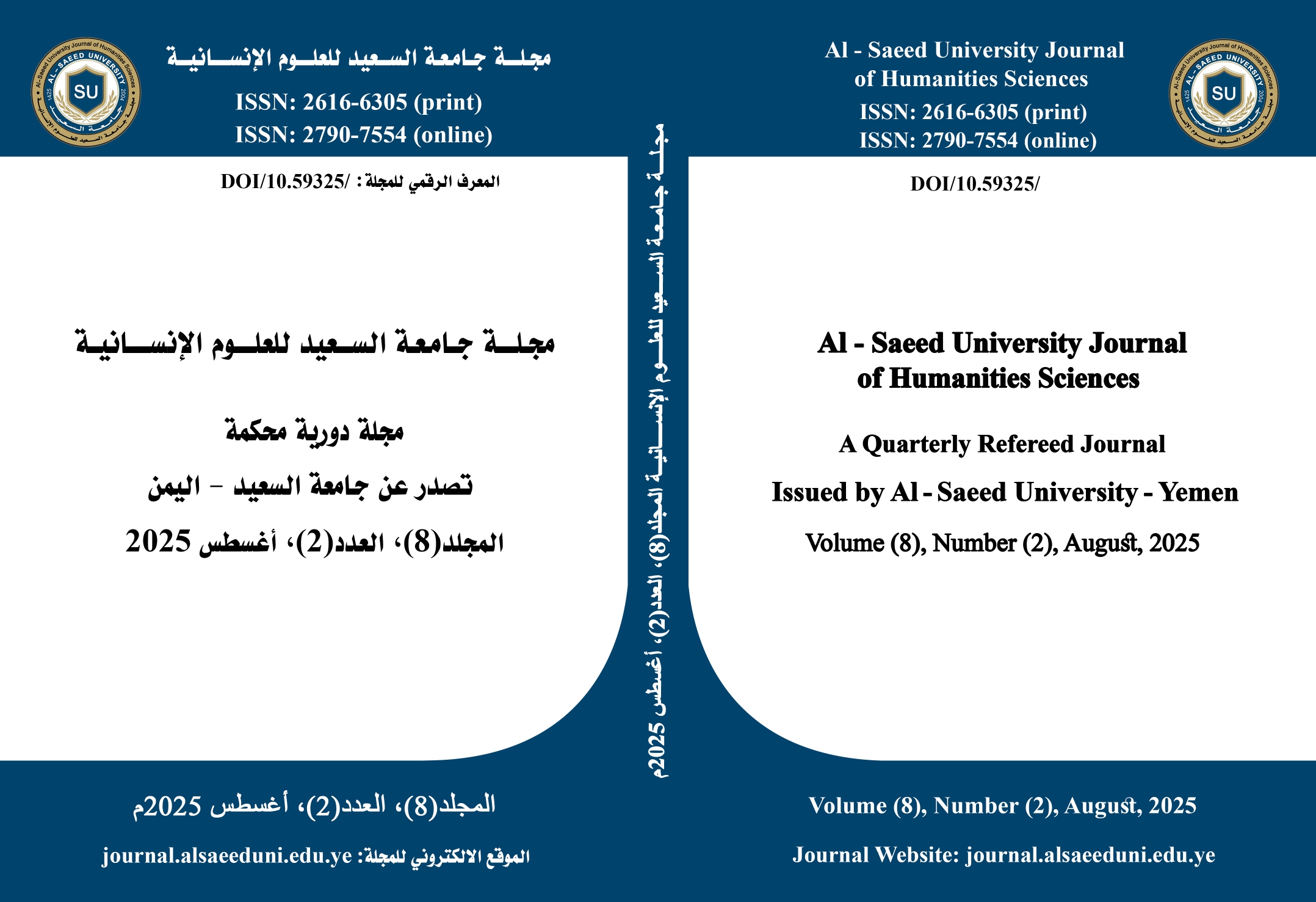Assessment of drinking Water Quality in the City of Mukalla from the Users Perspective "A Social Field Study"
DOI:
https://doi.org/10.59325/sjhas.v8i2.271Keywords:
Drinking water quality, Mukalla city, community awareness, water pollution, health impacts, household water treatment, field survey, water infrastructureAbstract
This study aims to evaluate the quality of drinking water in the city of Mukalla, Yemen, through a field-based questionnaire targeting water users in selected areas, namely Mukalla, Al-Sharj, Al-Dees, Fouh, and Khalaf. The research focused on three main aspects: community awareness regarding water-related issues, health impacts resulting from water pollution, and residents' perspectives on possible solutions to improve the water situation. Data were collected from 101 participants and analyzed using SPSS software.
The findings revealed significant challenges in both the distribution and quality of water. Approximately 70% of respondents indicated that water distribution is inequitable across areas, with noticeable variations in delivery frequency and quality. Furthermore, 39.4% reported that a family member had experienced water-related illnesses such as diarrhea and stomach pain. Notably, 94.6% of participants cited kidney stone formation as a common health issue—an outcome consistent with elevated levels of total dissolved solids (TDS) in drinking water, which increases the risk of kidney stones and urinary tract disorders in the study areas.
The study also highlighted limited public awareness regarding water quality issues. About 55% of respondents reported inadequate knowledge of household water treatment methods or quality improvement strategies. Based on these findings, the study recommends upgrading water infrastructure and expanding distribution networks to ensure fair access to water across all areas. It also emphasizes the need for environmental awareness campaigns and encourages the use of household water treatment techniques such as filtration and boiling to improve water quality for domestic use.
These insights contribute to improving water management in Mukalla, enhancing public health, and promoting a more equitable distribution of water resources.
Downloads
Published
How to Cite
Issue
Section
License
Copyright (c) 2025 سعاد عبدالله خميس الصبان، محمد فتحي عباد محمد بن قصام، معتز محمد عمر باشامي، كمال عبدالله علي العمودي، فاطمه صالح حسن السومحي

This work is licensed under a Creative Commons Attribution 4.0 International License.
copyright is retained by the authors. Articles are licensed under an open access Creative Commons CC BY 4.0 license, meaning that anyone may download and read the paper for free. In addition, the article may be reused and quoted provided that the original published version is cited. These conditions allow for maximum use and exposure of the work.



